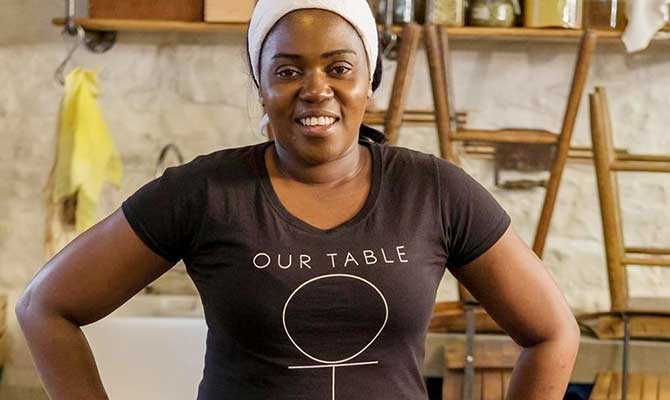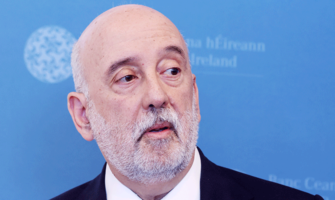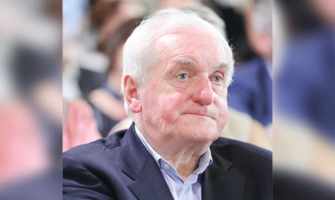
Ellie Kisyombe
Egotism and factionalism are the rocks that threaten to scupper the Social Democrats’ ship before the party even leaves the harbour. The recent furore over its local candidate for Dublin’s North Inner electoral area, Malawian national Ellie Kisyombe (41), and the cack-handed management of the affair by the leadership has stripped back the curtain on the centre-left ‘project’, revealing internal divisions that are becoming harder and harder to conceal.
Broadly speaking, the Soc Dems are increasingly being divided into two camps; the leadership – Róisín Shortall, Catherine Murphy and her Iago, political director Anne-Marie McNally – versus sitting North Inner City councillor Gary Gannon, his Dublin Central Branch and acolytes like Carly Bailey, Tara Deacy, former executive member Chris Bond and others. The Kisyombe affair is just the latest flashpoint in that struggle.
The highlighting of concerns about Kisyombe by the leadership and the decision to review the asylum seeker’s backstory is decidedly bad politics for a supposedly cuddly, left-of-centre group like the Soc Dems. Key to understanding the motivation behind the decision (and the ensuing resignations) is that it all happened around the time Gannon inflicted a bruising defeat on the leadership on another issue, the upcoming European elections.
Shortall and Murphy were dead-set against running a candidate in May, supposedly fearful of the financial hit the party would take in the event of an unsuccessful campaign. Although the party had yet to formally decide whether it would contest a seat in Dublin or not, Gannon and McNally declared their candidacy for the nomination. After Gannon signalled his intentions, in early January an eager McNally told TheJournal.ie that the party’s “unparalleled record on standing strong female candidates makes it incumbent on me to put myself forward to our members”.
Despite a claim in the Irish Times last weekend that McNally – who has never won an election – “had the edge”, the dogs in the street knew she didn’t stand a chance against the popular and charismatic Gannon, a sitting Dublin City councillor with experience and a media profile. As quickly as she had entered the race, McNally pulled out after what she described in a private message to Soc Dem members as “detailed conversations with experienced people whose judgement I trust”. Parrotting Murphy and Shortall, she cited party resources as a major concern.
McNally’s turn-about cleared a path for Gannon to seek the nomination, but the Soc Dem leaders were still opposed to the notion. So adamant were Shortall and Murphy that they even threatened to resign if the national executive voted to run a candidate. The exec did precisely that and a major scrap ensued.
This vote is still being contested by the leadership, which has been furiously spinning in the press. In the IT last weekend, for example, Jennifer Bray reported that the party “has still to decide if it will have a flag-bearer”.
Combined with insecurity about how the Sunday Times article would play, it’s easy to see why the leadership feels little loyalty toward Kisyombe. She is Gannon’s political creation and it was he who convinced Kisyombe to run in the locals. An assiduous promoter of the activist within and without the party, Gannon is chiefly responsible for her graduation from community activism to politics and she is fiercely loyal to him, like the rest of his Dublin Central followers. Mass resignations from the branch were threatened if the leadership had pushed for Kisyombe to suspend her campaign pending the review.
With boycotts against asylum centre operator Aramark cropping up on campuses all over the country as well as protests (and counter protests) in Roscommon, the plight of migrants and the campaign against the direct provision system are rapidly ascending the left and liberal agenda. Kisyombe has been front and centre in that fight in recent years as a member of the Movement of Asylum Seekers in Ireland and founder of Our Table, a non-profit that operates pop-up cafés around Dublin.
From a well-to-do Malawian family, Kisyombe’s father was a property developer and businessman, once affiliated with the country’s corrupt former president, Elson Bakili Muluzi. She alleges that her father was poisoned after being betrayed by a political ally. When Muluzi was replaced by the equally corrupt Bingu Wa Mutharika in 2004, Kisyombe became an anti-government activist, saying this put her life in danger. She fled to Ireland around 2011 and has been living in a reception centre ever since. Her two children joined her a few years ago.
Kisyombe enjoys a not insignificant media profile and the IT has been positively evangelical about her since her arrival on the scene. Since 2016, she has been ubiquitous in the paper of record’s annual ‘People to Watch’ articles and has been plugged on several occasions by her pal, columnist Una Mullally, herself a mate of Gannon’s. Mullally was actually out canvassing for Kisyombe in Smithfield, D7 last month. The Malawian even made an appearance in the music video for Wicklow crooner Hozier’s Nina Cried Power.
Last October, the party decided to run two candidates in Gannon’s North Inner City electoral area, Kisyombe and Carol Deans. Neither has much of a profile in the area (although Deans has the advantage of being from the area), but Gannon’s local popularity might be enough to get one of them over the line.
The bigger picture here is that the party is still floating at a troubling 2% in the national polls and needs a few wins in May to maintain any sort of momentum. Outside of Dublin media circles, the party has failed to live up to the hype. Policy-wise, there is nothing to separate the Soc Dem platform from the Labour Party and membership growth is believed to be anaemic.
Aside from Gannon, who came close in 2016, there is little hope of the party adding to its two TDs at the next general election, when it will run a conservative slate of mostly politically inexperienced middle-class professionals – provided it hasn’t cannibalised itself by then (see The Phoenix, 11/1/19).
Vibrant candidates with an ability to capture the public imagination like Kisyombe – the first person living in direct provision to run for public office – are rare in the party, which has yet to stand out from the crowd. Even if she failed to win a seat in May, having someone with her activist credentials and media profile inside the tent would be a boon to the Soc Dems. Supporters will be hoping the party hasn’t blown it.




















